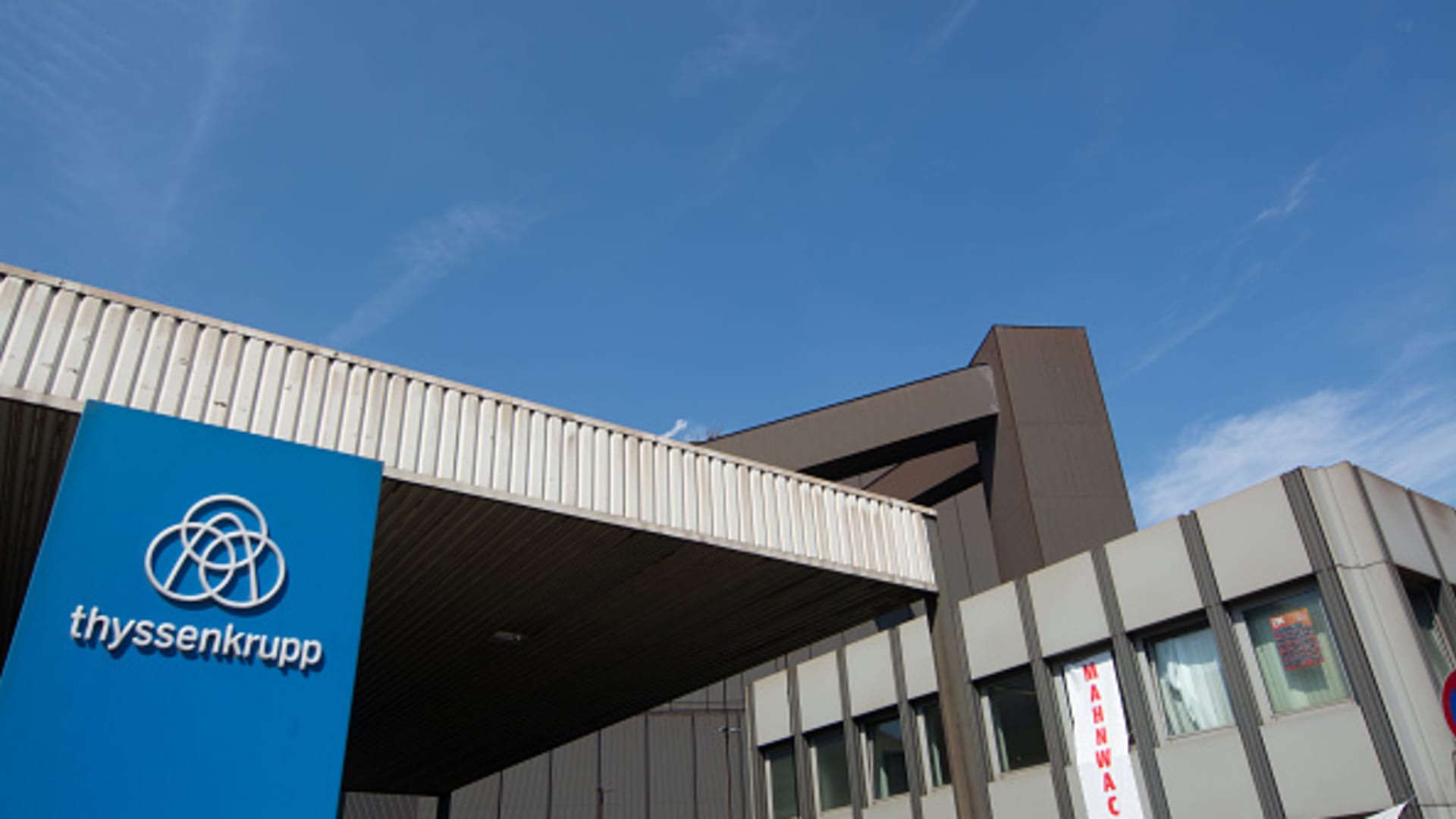A general view of the gate of the Thyssenkrupp industrial area in Duisburg, Germany, on August 29, 2024. (Photo by Ying Tang/NurPhoto via Getty Images).
Nurphoto | Nurphoto | Getty Images
Shares of Germany’s Thyssenkrupp jumped on Tuesday after the company posted a narrowed net loss and a 1-billion-euro ($1.06 billion) impairment on the firm’s struggling steel division.
The company’s Frankfurt-listed stock was up 7.5% at 8:48 a.m. London time.
Thyssenkrupp posted adjusted earnings before interest and taxes of 151 million euros in the fourth quarter, coming in above a Visible Alpha consensus of 120 million euros, according to Reuters. Across the full fiscal year ending Sept. 30, it narrowed its net loss to 1.5 billion euros after deducting minority interest, compared to a net loss of 2 billion euros in the year prior.
It said the loss for the past fiscal year was mainly due to asset impairments totaling around 1.2 billion euros, of which 1 billion euros were undertaken by its Steel Europe division.
“In respect of our main strategic issues, the current fiscal year will be a year of decisions – especially for Steel Europe and Marine Systems,” CEO Miguel Lopez said in the firm’s Tuesday statement.
“In parallel, we are seeking to further improve the performance of all our businesses and better leverage the opportunities presented by the green transformation.”
Thyssenkrupp, which makes submarines and car parts alongside its steel production, is currently in the process of restructuring Steel Europe into an independent company. Over the summer, the firm completed the sale of a 20% stake in the unit to EP Corporate Group (EPCG), the investment vehicle owned by Czech billionaire Daniel Krentisky. The companies are currently in talks to form a 50:50 joint venture.
The struggling German industrial firm is also looking to potentially offload its Marine Systems business and is still negotiating with the German government about state participation.
Germany has been beset by political and economic woes in recent months as business activity fell to a seven-month low in September, and the ruling coalition collapsed earlier this month.
“When it comes to recovery, Germany continues to lag behind its European neighbors,” Thyssenkrupp said in its annual statement, also published Tuesday. “As an export nation, Germany continues to suffer from subdued global demand for industrial goods. Moreover, weak domestic demand underscores the current investment crisis and weak consumer spending.”

